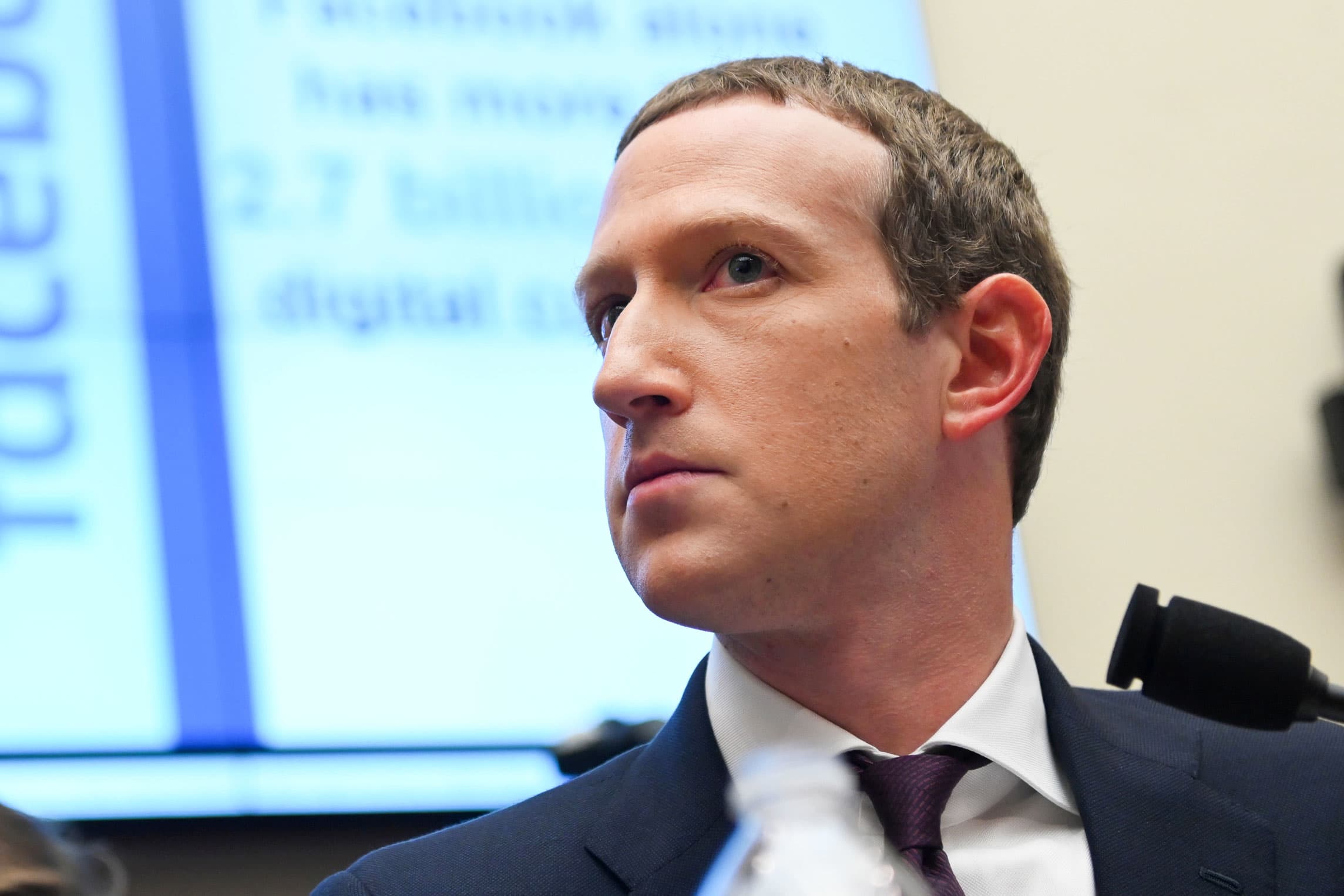
Facebook President and CEO Mark Zuckerberg testifies at a hearing for the House of Representatives Financial Services Committee in Washington on October 23, 2019.
Erin Scott | Reuters
Facebook CEO Mark Zuckerberg said Friday that the company will change its policies to ban hate speech in its ads.
Under its new policies, Facebook will ban ads that claim that people of a specific race, ethnicity, nationality, caste, gender, sexual orientation, or immigration origin are a threat to the physical safety or health of anyone else, Zuckerberg said. .
“I am committed to making sure Facebook remains a place where people can use their voices to discuss important issues,” said Zuckerberg. “But I am also against hate or anything that incites violence or suppresses voting, and we are committed to removing that content as well, no matter where it comes from.”
Furthermore, Zuckerberg said Facebook will do more to protect immigrants, migrants, refugees and asylum seekers from ads that suggest they are inferior to other groups of people or from ads that express contempt, dismissal or disgust towards them.
Zuckerberg’s comments come after nearly 100 brands announced that they would withdraw their Facebook advertising for the month of July or more as part of a movement called #StopHateForProfit. That movement protests “Facebook’s repeated failure to meaningfully address the large proliferation of hate on its platforms.” Zuckerberg did not directly address Friday’s boycotts.
Advertisers boycotting include big spenders like Unilever and Verizon, along with smaller companies like Patagonia, REI, Lending Club, and The North Face, according to an updated Sleeping Giants list. The group of organizations includes the Anti-Defamation League, NAACP, Sleeping Giants, Color of Change, Free Press and Common Sense.
Facebook shares fell more than 6% on Friday.
Additionally, Zuckerberg announced on Friday that Facebook will now tag content it decides to leave because it is deemed newsworthy and valuable to the public interest, even if it violates company policy. Facebook users who attempt to share that content will see a notice informing them that the content they share may violate company policy. Twitter has had a similar policy of leaving tweets that it deems newsworthy, especially tweets from world leaders. Those tweets are tagged accordingly.
“Often, watching politicians’ speech is in the public interest, and just as the media reports what a politician says, we believe that people should be able to see it for themselves on our platforms,” Zuckerberg said in a post. . .
This decision to add tags comes after Facebook came under fire from its own employees for refusing to censor or moderate a post by President Trump in late May. In that post, Trump said “when the looting begins, the shooting begins,” regarding the Black Lives Matter protesters. Some Facebook employees said the post violated Facebook community standards, which do not allow content that incites violence.
By contrast, Twitter has affixed a label warning users about the president’s violent rhetoric, which they must dismiss before they can see the tweet. Twitter also prevents users from liking or retweeting the tweet.
.